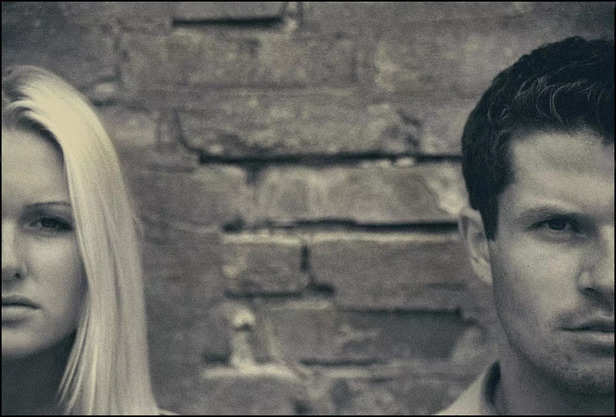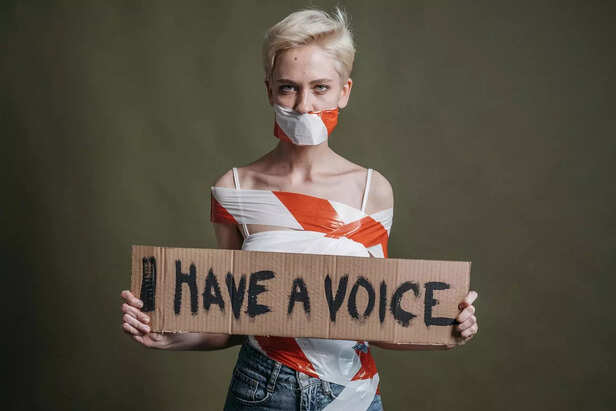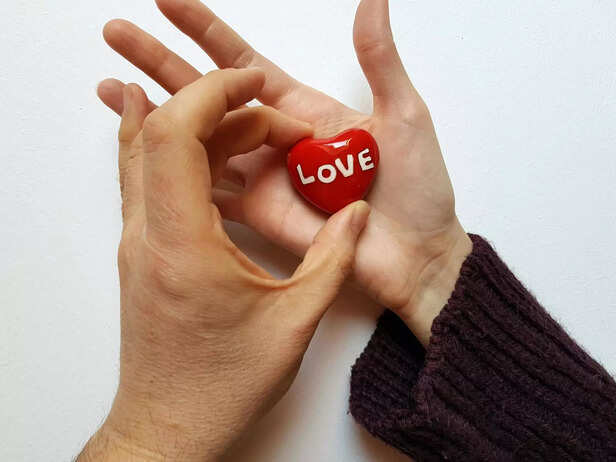How Feminism Ruined My Relationship - And Why It Was the Right Thing
Riya Kumari | Apr 23, 2025, 15:08 IST
( Image credit : Timeslife )
It’s 11:47 p.m. I’m standing in my kitchen, holding a half-empty wine glass, dramatically monologuing to my cat like I’m the lead in some Lena Dunham-meets-Reese-Witherspoon fever dream. I’ve just ended a relationship with a man who thinks “helping” with chores is a personality trait. Feminism didn’t ruin my relationship—it handed me the damn flashlight and said, “Girl, look closer.”
We rarely talk about what feminism looks like in relationships—not the kind on Instagram, with matching protest signs and #HeForShe captions—but the quiet, unglamorous kind. The kind where someone chooses to walk away, not in anger, but in awareness. This isn’t a story about blaming men. It’s about waking up from a story I was writing just to keep the peace. It’s about realizing that equality is not about who washes the dishes—it’s about who notices they’re dirty.
The Silent Exchange We Never Named

He never hit me. He never shouted. He respected me. He called himself a feminist. But every day, I carried the emotional thread of the relationship—quietly making the plans, remembering the birthdays, softening my voice so he wouldn’t shut down.
And the truth is, he didn’t see any of it. Not out of malice, but because he never had to. He was born into a world that told him his needs were important—and I was raised in one that taught me mine were flexible. Feminism didn’t “ruin” this relationship. It handed me language for what I had only felt in my bones. It gave me the right to say, “This isn’t working for me,” without needing to prove I was hurt enough to justify leaving.
The Hardest Part To Admit

He was not a bad man. And I didn’t leave because I stopped loving him. I left because I loved myself enough to stop explaining basic empathy. Feminism doesn’t just ask us to believe in equality—it asks us to recognize inequality even when it’s not loud.
Even when it wears a nice shirt and says all the right things. Even when it tells you it’s “trying.” Trying is not a character trait. It’s the starting point.
What Love Looked Like Before I Knew Better

In our relationship, I was the one who read the books, went to therapy, learned how to name my triggers and regulate my emotions. He said he “admired that about me.” But he never asked what it cost.
When I cried, he felt “helpless.” When he shut down, I felt responsible. When he forgot to ask how my day was, I told myself he just wasn’t “a words person.” The truth is, we were both speaking different languages—but only one of us was trying to translate.
Why Leaving Is Sometimes The Most Loving Thing You Can Do

Leaving wasn’t a punishment. It was a quiet honoring of the life I want to live. One where love doesn’t come at the cost of shrinking. One where care isn’t constantly negotiated or explained. Feminism gave me that mirror.
Not to see what was wrong with him. But to see what I had been trained to accept. Because when you begin to understand your worth, not in theory but in practice, it becomes almost impossible to keep pretending that “almost enough” is enough.
The Part That Lingers

If you’ve ever felt exhausted by how much you’re doing—emotionally, mentally, even spiritually—just to keep a relationship balanced, you’re not imagining it. Feminism asks hard things of us. It asks us to love differently. To stop mistaking quiet resentment for maturity.
To stop calling tolerance “strength.” To stop clapping for crumbs. And that’s uncomfortable. Because it means walking away from relationships that once felt safe—but only because they were familiar. I still believe in love. But not in love that needs me to forget myself to function. So yes, feminism “ruined” my relationship. But it gave me back the one that matters most—the one with myself.
For You, If You’re Here Too
If you're reading this and something in you feels heavy, I want you to know this: You’re not “too much.” You’re not unreasonable. You’re just waking up. And that is a sacred thing.
Let it change you. Let it free you. Let it take everything that was never love to begin with. And when it’s done—when the grieving is over—let it guide you to a love that doesn't need explaining. Only understanding.
The Silent Exchange We Never Named

Woman crying
( Image credit : Pexels )
He never hit me. He never shouted. He respected me. He called himself a feminist. But every day, I carried the emotional thread of the relationship—quietly making the plans, remembering the birthdays, softening my voice so he wouldn’t shut down.
And the truth is, he didn’t see any of it. Not out of malice, but because he never had to. He was born into a world that told him his needs were important—and I was raised in one that taught me mine were flexible. Feminism didn’t “ruin” this relationship. It handed me language for what I had only felt in my bones. It gave me the right to say, “This isn’t working for me,” without needing to prove I was hurt enough to justify leaving.
The Hardest Part To Admit

Couple fight
( Image credit : Pexels )
He was not a bad man. And I didn’t leave because I stopped loving him. I left because I loved myself enough to stop explaining basic empathy. Feminism doesn’t just ask us to believe in equality—it asks us to recognize inequality even when it’s not loud.
Even when it wears a nice shirt and says all the right things. Even when it tells you it’s “trying.” Trying is not a character trait. It’s the starting point.
What Love Looked Like Before I Knew Better

Cooking
( Image credit : Pexels )
In our relationship, I was the one who read the books, went to therapy, learned how to name my triggers and regulate my emotions. He said he “admired that about me.” But he never asked what it cost.
When I cried, he felt “helpless.” When he shut down, I felt responsible. When he forgot to ask how my day was, I told myself he just wasn’t “a words person.” The truth is, we were both speaking different languages—but only one of us was trying to translate.
Why Leaving Is Sometimes The Most Loving Thing You Can Do

Feminism
( Image credit : Pexels )
Leaving wasn’t a punishment. It was a quiet honoring of the life I want to live. One where love doesn’t come at the cost of shrinking. One where care isn’t constantly negotiated or explained. Feminism gave me that mirror.
Not to see what was wrong with him. But to see what I had been trained to accept. Because when you begin to understand your worth, not in theory but in practice, it becomes almost impossible to keep pretending that “almost enough” is enough.
The Part That Lingers

Love
( Image credit : Pexels )
If you’ve ever felt exhausted by how much you’re doing—emotionally, mentally, even spiritually—just to keep a relationship balanced, you’re not imagining it. Feminism asks hard things of us. It asks us to love differently. To stop mistaking quiet resentment for maturity.
To stop calling tolerance “strength.” To stop clapping for crumbs. And that’s uncomfortable. Because it means walking away from relationships that once felt safe—but only because they were familiar. I still believe in love. But not in love that needs me to forget myself to function. So yes, feminism “ruined” my relationship. But it gave me back the one that matters most—the one with myself.
For You, If You’re Here Too
Let it change you. Let it free you. Let it take everything that was never love to begin with. And when it’s done—when the grieving is over—let it guide you to a love that doesn't need explaining. Only understanding.
